Yes, using worm castings really is one of the biggest and best secrets of all time when it comes to growing amazingly healthy and productive plants. Period!
Worm castings are quite simply the most powerful, incredible, plant-energizing fertilizer & soil conditioner around. Yes, even more than compost – which, of course, is pretty special in its own right.
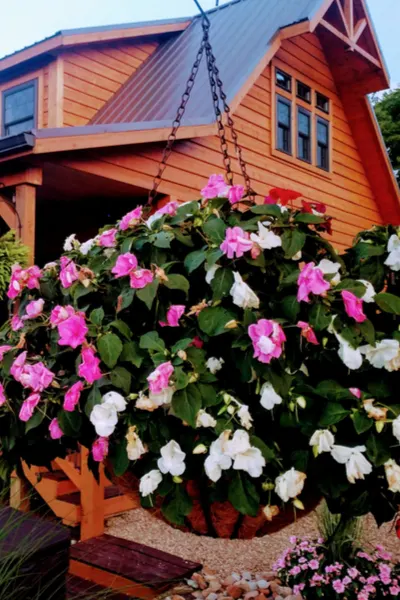
Worm castings are easy to use everywhere, and on any type of plant. That includes in the vegetable garden and in flowerbeds. And on hanging baskets, potted plants and containers, and shrubs and trees.
Best of all, castings are 100 percent safe, natural and completely organic.
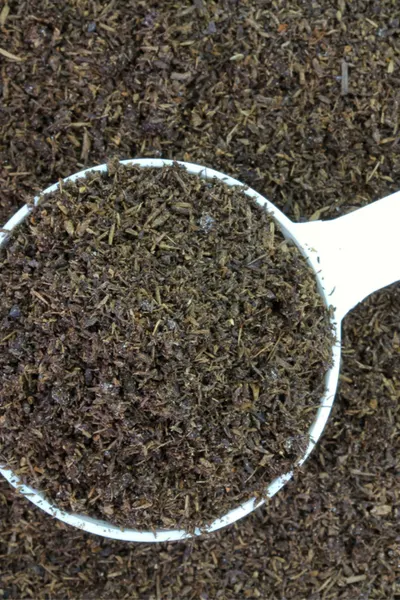
Here is a look at just exactly what they are, and how using worm castings can be a great way to growing healthier, more productive plants.
What Are Worm Castings – And How Do They Work?
Worm castings are the dried manure of worms. Unlike the manure of chickens, horses, cows or rabbits, castings are ready to use immediately.
As worms move through soil, they chew and digest tiny organisms and bits of organic material. Those materials are then ground down in their digestive system. It exits as a perfect blend of organic nutrients.
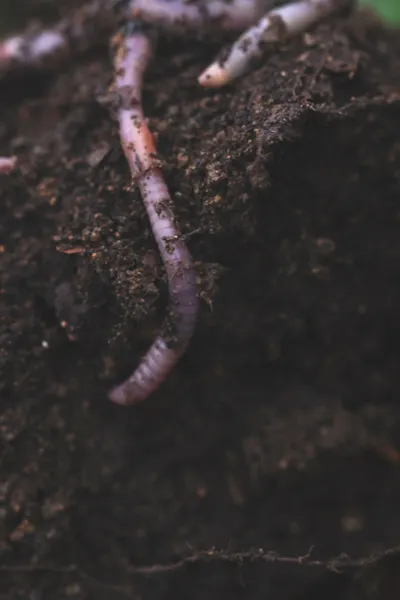
Worm castings contain all kinds of powerful organic material and minerals. Minerals such as calcium, nitrogen, phosphorous, potassium and magnesium. All of which, coincidentally, are critical nutrients needed for plants to grow strong and healthy.
How To Use Worm Castings
As you will see below in detail, we use worm castings in a variety of ways and methods. We mix dry castings in our seed starting soil and potting soil. And we mix them into planting holes for vegetable plants, flowers, shrubs, bushes and trees too.
But it doesn’t end there. By soaking the castings in water, it creates an incredible liquid fertilizer. One that helps grow bigger and more productive containers plants and hanging baskets. (See : How To Make Your Own Natural Liquid Fertilizer)
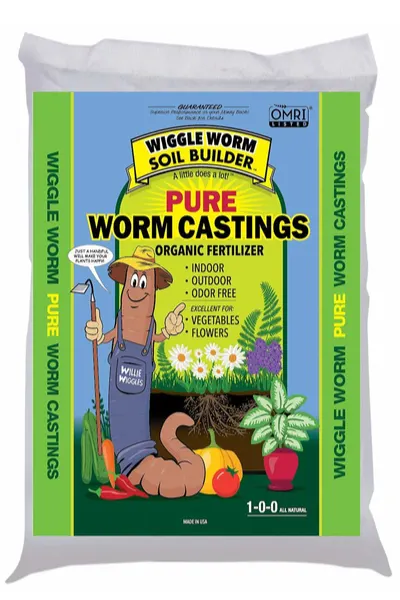
Although you can raise and harvest worm castings with a homemade “worm-farm” set up, they can also be readily purchased. The key when purchasing is to make sure you are getting 100% castings.
There are many knock-off products that contain mostly fillers, with just a fraction of worm castings. But it is the all-natural, 100 percent pure castings that work like no other. Product Links : 100% Worm Castings 30lb. Bag – 100% Castings 15lb. Bag
Here is an in-depth look at how to use worm castings all throughout the landscape:
Using Worm Castings – The Where & How
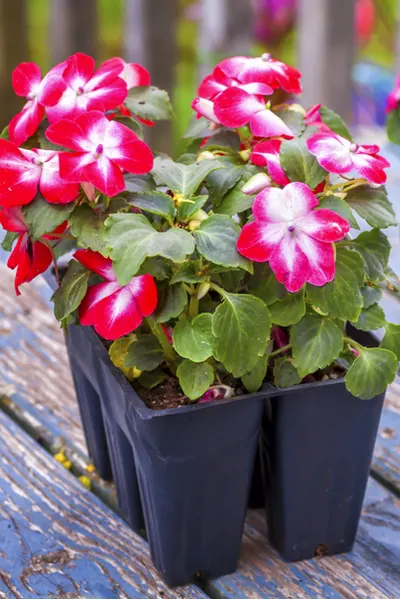
For Seedlings – We mix worm castings into our seed starting soil at a rate 1 cup of castings for every 1 cup of potting soil.
The slow release of nutrients is perfect for young seedlings to get off to a strong, healthy start. See : How To Create The Perfect Potting Soil
For Vegetable & Flower Transplants – When transplanting vegetable plants and flowers into the soil, we use a quarter cup of castings mixed into every planting hole.
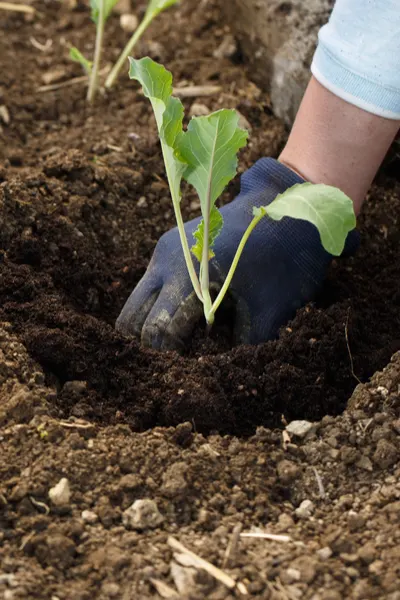
We also sprinkle a few tablespoons mixed into the soil around the surface of the plant. This acts as a slow release fertilizer every time it rains, or you water.
Baskets & Containers
Hanging Baskets – If you are creating your own hanging baskets, mix in 1/2 of cup of castings in the potting soil at planting time.
If purchasing pre-planted baskets, sprinkle in a quarter cup of castings on top of the soil. As you water, or as it rains, the nutrients leach down into the plant’s roots to provide big power.
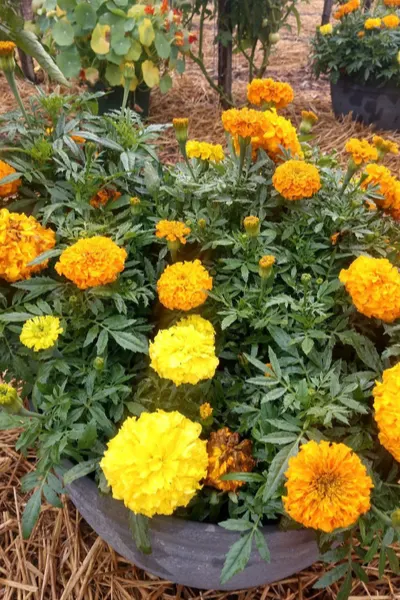
Re-apply ever month to keep baskets looking great all season long.
Container Plantings – Much like hanging baskets, mix in a 1/2 cup of castings to the soil in your containers. Once a month, add a quarter cup of castings to the top of the soil.
Liquid Compost Tea – As mentioned earlier in the article, you can create an incredible all-natural homemade “miracle growing liquid fertilizer” with castings.
To create, mix 1/2 to 3/4 cups of castings with 1 gallon of water. Let the solution soak for 24 hours.
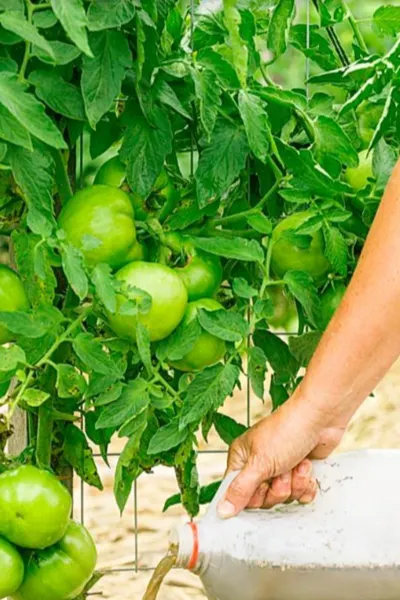
You can then use the solution to fertilize vegetable plants, flowerbeds, hanging baskets, containers and more. For vegetable plants, we apply 1/4 gallon to each root zone when fertilizing.
For containers and hanging baskets, we water with the solution every few weeks. You will be shocked at the power it provides to your plants.
Perennials – When planting, transplanting, or splitting and dividing perennials, mix in a quarter cup of castings to each new planting hole.

Shrubs and Trees – Castings are excellent for planting shrubs and trees too! For traditional 1 gallon containers, mix in 1 cup of castings when planting.
Here is to using worm castings to power your plants to new heights this year!
Jim and Mary Competti have been writing gardening, DIY and recipe articles and books for over 15 years from their 46 acre Ohio farm. The two are frequent speakers on all things gardening and love to travel in their spare time.
As always, feel free to email us at thefarm@owgarden.com with comments, questions, or to simply say hello! You can sign up for our free email list in the subscribe now box in the middle of this article. Follow us on Facebook here : OWG Facebook. This article may contain affiliate links.

